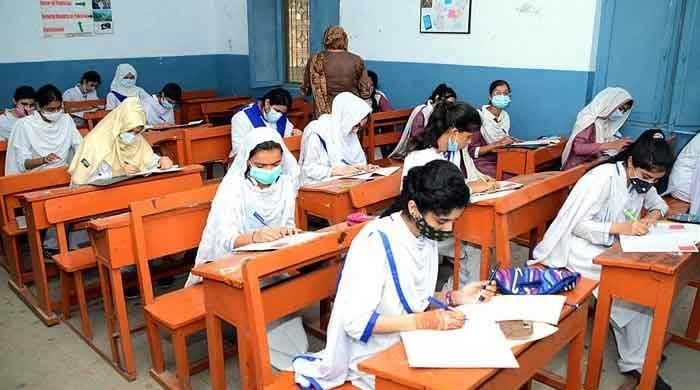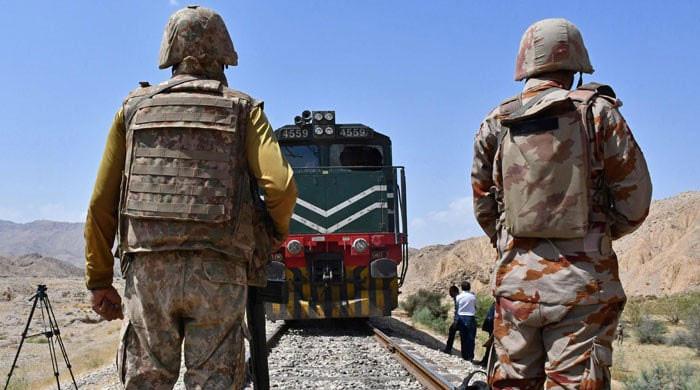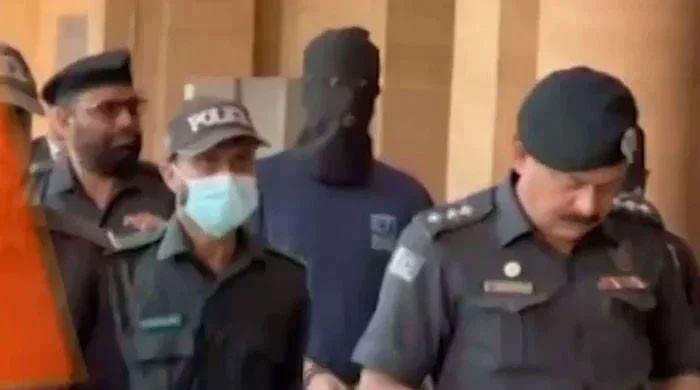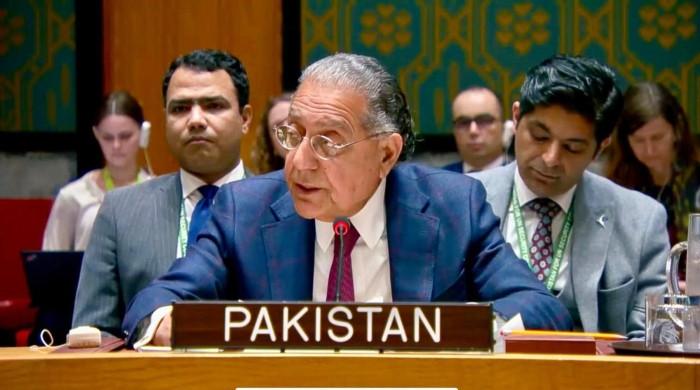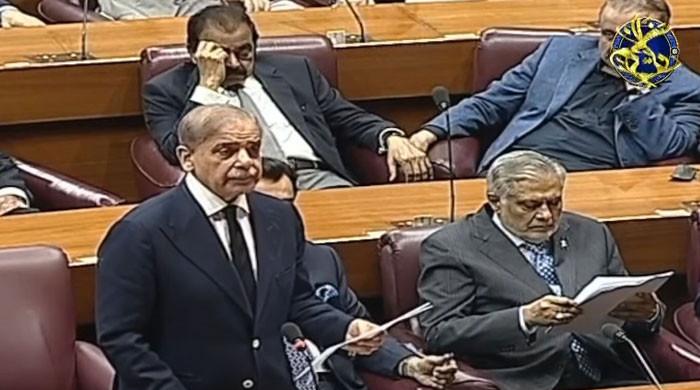PML-N leaders call January 13 'darkest day' in Pakistan's history as NA passes 'mini-budget'
"No rules, constitutional guidelines were followed during voting for bills", says former prime minister Shahid Khaqan Abbasi
January 14, 2022
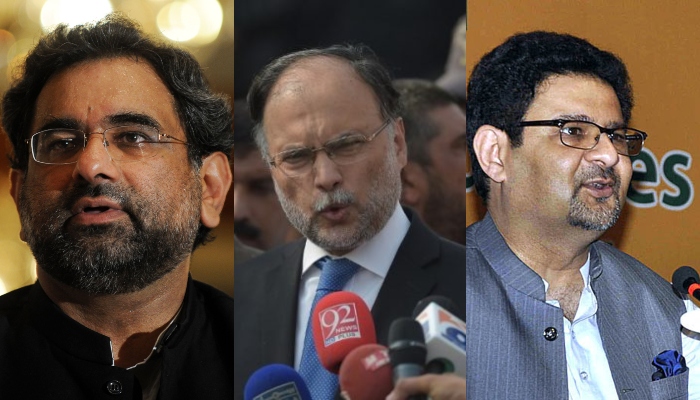
- "Bills from NA session were approved in haste and even government was unable to elaborate the situation,” says Abbasi.
- Ahsan Iqbal says "this is a way of destroying CPEC."
- Govt "imposed further taxes instead of adopting austerity measures," says Miftah Ismail.
ISLAMABAD: PML-N senior leaders Shahid Khaqan Abbasi and Ahsan Iqbal on Friday berated the PTI-led government for approving the supplementary bills, termed by the Opposition as 'mini-budget', and said that January 13 was the "darkest day in the history of Pakistan," Geo News reported.
Referring to Thursday (yesterday) when the National Assembly passed the State Bank of Pakistan (Amendment) Bill 2021 and the supplementary finance bills with a majority vote, Abbasi — who was holding a press conference in Islamabad along with other party leaders, said that "January 13 was the darkest day for the Parliament as the bills were approved without any discussion."
The former prime minister said that bills being passed in the Senate without discussion is unprecedented, adding that, "Bills from NA session were approved in a haste and even the government was unable to elaborate the situation.”
Abbasi further said that the incumbent government is handing over the country’s economic keys to the International Monetary Fund (IMF) and nothing is more dangerous than this, adding that, “the burden of more than Rs700 billion have been placed on the nation’s shoulder.”
Abbasi went on to say that "no rules and constitutional guidelines were followed during the voting for the bills and it all happened in the prime minister's presence," he added.
He further lashed out at federal ministers, saying: "the ministers admitted that they were compelled to pass the bill under pressure from the IMF."
"Why are you defending the supplementary bills when you are forced to pass them?" he asked. "We are not ready to hand over the country's economy to the IMF for the sake of a $6-billion loan," he added.
The PML-N leader said that such things happen when a "disgraced government comes to power and the prime minister resorts to telling lies."
Talking about Defence Minister Pervaiz Khattak's brawl with Prime Minister Imran Khan, Abbasi said that it only happened over a "shortage of gas".
Why has the government not bought Liquefied Natural Gas (LNG) when the country is going through a gas crisis?" he questioned.
Govt imposed further taxes instead of adopting austerity measures: Miftah Ismail
On the occasion, former finance minister and PML-N leader Miftah Ismail said that the IMF is asking to reduce the budget deficit but instead of taking austerity measures, the government decided to impose further taxes.
Ismail said that in the supplementary bills, the incumbent government has imposed a tax on chicken feed as this step will ultimately increase chicken prices in the country too.
"Tax on machinery and a 140% tax burden has also been imposed on pharmaceuticals," he said.
He further criticised the mini-budget by saying that tax on medicines has also been imposed, while tax on bread was withdrawn but shopkeepers have to pay the taxes.
Bill injustice with people of Pakistan: Ahsan Iqbal
PML-N Secretary-General Ahsan Iqbal also spoke during the press conference and he also termed January 13 as the "darkest day of history", saying that he begged before the NA speaker that the bill regarding the SBP is against Pakistan but it was approved "in violation of all the rules and regulations".
Criticising the passage of the bill, Iqbal said: "Six months ago, the finance minister had painted a rosy picture about the country's historic tax collection targets, but the government ended up economically suppressing the masses.
"This is injustice with the people of Pakistan," he said.
Iqbal further said that the passage of the bill was a way of "destroying the China Pakistan Economic Corridor (CPEC).
It is pertinent to mention here that the NA on Thursday passed the State Bank of Pakistan (Amendment) Bill 2021 and supplementary finance bill — termed by the Opposition as a "mini-budget" — with a majority vote, giving effect to new tax measures in an ambitious bid to achieve a tax target of Rs5.8 trillion as per the requirement of IMF.
The approval of the supplementary finance bill was necessary to ensure Pakistan’s sixth review of the $6 billion Extended Fund Facility (EFE) receive clearance from the IMF’s Executive Board which is scheduled to meet later this month to decide the disbursement of the $1-billion tranche.




